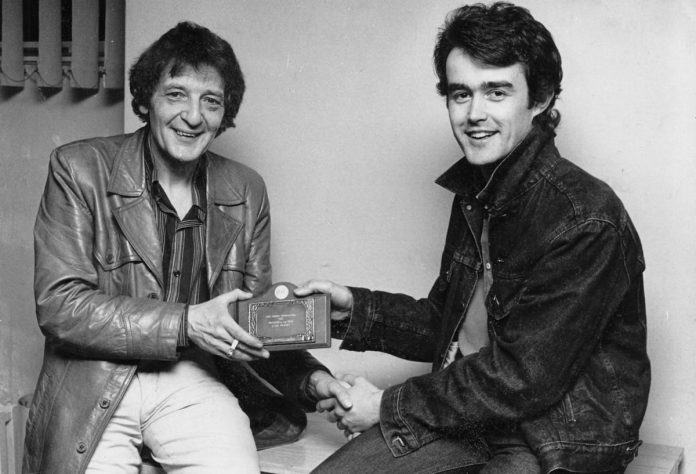
For the first time an English jazz group was to play in Brazil; and although an hour before the scheduled start it rained furiously, the hall was packed (around 900 seats).
The quartet played an hour and fifty minutes of straight-ahead jazz with no concessions. These four musicians are a beautifully integrated group with perfect empathy, and good moments abounded. The first number, a Tracey blues, showed the audience the qualities of the quartet. It was up-tempo, driving and full of delightful twists and turns. The group showed skills which only a few already knew, but everybody praised the music.
The repertoire was varied, with excellent compositions. After Themen’s soprano opening on Green Dolphin Street, his solo, with good use of dynamics, was long and beautifully constructed. Stan made a driving statement using many elements of modern piano, revealing his approach. Roy is a bassist with a big tone, fast fingers and an astonishing style; the cleanly played notes, no matter how fast, were brilliantly paced. Clark (Stan’s son and a promising musician) showed that at an early age he knows everything about drums; attentive and alert, he followed every turn of his senior fellows.
Stan played a long unaccompanied solo to open Willow Weep For Me with so many surprises that everyone in the audience reacted with enthusiasm and joy. He is certainly a creator of the highest order and a distinctive, exciting musician. Then Art made his tenor talk, full of genuine emotion and imagination; and on Lover Man he did a job worthy of recording, an impressive excursion inside and beyond the chords of this lovely Ram Ramirez composition.
Two Thelonius Monk pieces – Nutty and I Mean You – were ideal vehicles for the quartet. Difficult as Monk’s music can be, Stan Tracey and his musicians made personal and different interpretations of both tunes. The quartet also played a total of seven unannounced Tracey originals with fire, guts and bright imagination.















